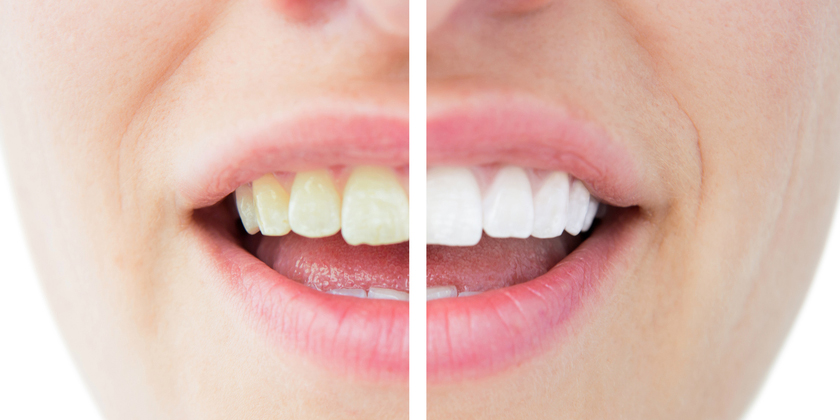It’s sad to say that teeth don’t stay white forever. Though brushing and flossing everyday helps you to keep your teeth bright and clean, over time they may still turn yellow, especially depending on the types of food you eat. If you find your teeth changing color, you’re not alone; according to the American Association of Orthodontists, almost 90% of patients requested for tooth whitening. If you are thinking of going for a whitening job yourself, prepare yourself for the visit with these five most commonly asked questions about the process.
Why Did My Teeth Change Color?
There are various reasons why this can happen. The major culprits tend to be certain foods, such as coffee, tea and red wine, due to their intense color pigments called chromogens which attach themselves to the enamel of your teeth and discoloring them. Another major culprit is tobacco, so if you are a heavy smoker, your teeth will turn yellow fast due to the large amounts of tar and nicotine going into your mouth. In addition, your teeth turn yellower with age as the outer enamel layer of your teeth get thinner and more of the yellowish softer area beneath, called dentin, shows through. Dentin can also show if your teeth were hit with a strong force. Certain medications can also darken teeth such as some antihistamines, antipsychotics and high blood pressure medications, as well as medical procedures involving radiation, such as chemotherapy.
What Is The Process Of Teeth Whitening?
It’s very simple: a whitening product (there are different types) is applied on your teeth, all of which would contain one of two tooth bleaches, hydrogen peroxide or carbamide peroxide. These bleaches will act on the stains of your teeth to break them into smaller pieces, making the yellowish or dark color less concentrated, and brightening your teeth.
Can You Use Whitening Products On All Teeth?
It is not advisable to use whitening products on all teeth, as different products are meant for different uses. For example, yellow teeth can be bleached easily, but brown teeth may not be suitable for bleaching, and teeth with gray tones may show no effect when bleached. In addition, whitening does not work on tooth caps, veneers, crowns or fillings, nor if the discoloration was caused by medications or a previous tooth injury.
You would need to consult a dentist to know which whitening product is fit for you. There are a variety of options to choose from, from whitening toothpastes, at-home bleaching kits, and in-office bleaching procedures.
Are There Any Side Effects From Whitening?
There have been people who experienced tooth sensitivity after using teeth whitening products. This happens when the peroxide in the whitener goes through the enamel to the soft dentin beneath, irritating the nerve. Most of the time, this sensitivity does not last long, so you can wait for a while between treatments to let your tooth recover. Be sure not to overuse whiteners too or it may damage your teeth.
Book your appointment with a qualified dentist to talk about your teeth whitening concerns today!


